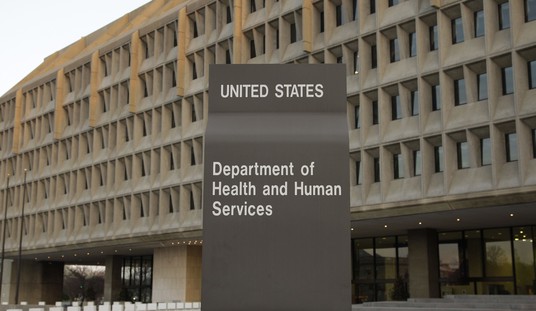You need to watch both clips below, one of Comey’s opening statement and the other of the exchange with Gowdy, to understand what Gowdy’s after here. The hardest knock on Comey on Monday for his decision not to recommend charges was that he emphasized that Hillary didn’t intend to mishandle classified information even though the relevant statute doesn’t require proof of intent. 18 U.S.C. 793(f) says you’re guilty and punishable by fine or up to 10 years(!) in prison merely if you’re grossly negligent in mishandling that info. Comey addresses that in his opening statement here. Fair enough, he says, the statute does say that, but in the 100 years that the statute’s been on the books there’s been exactly one prosecution under it. Every other instance in which someone was charged for mishandling classified material was a case of them doing so intentionally. If virtually no one else has ever been charged for gross negligence, why should she be the first (or second)?
Gowdy’s response: How do you know she didn’t intend to put classified information on her private server? Absent a defendant saying “I hereby intend to do act X,” the only way a prosecutor can ever prove intent is though circumstantial evidence. That’s the point of leading Comey through Clinton’s many lies. It’s not (just) a political exercise designed to embarrass the Democratic nominee, it’s evidence that she was trying to hide her intent in making one false statement after another suggesting mere incompetence. Even by Comey’s own higher standard of mens rea, there’s enough here to recommend charges, Gowdy’s saying. So why weren’t they recommended?
Don’t think Comey didn’t set a pernicious precedent either in letting her off easy. Defense lawyers for other suspects accused of mishandling classified info are already licking their chops:
“I intend to use the Hillary defense,” said Sean M. Bigley, a lawyer whose firm handles dozens of cases a year involving national security clearances. “I really question how any agency can say someone is a security risk if the president of the United States did something similar.”
He added, “We’ve had people lose 20-year careers for doing less than what she did.”
Mark F. Riley, a former military intelligence officer who became a lawyer defending those accused of national security violations, said he, too, would invoke the Clinton recommendation.
“I’m going to use it every chance I get, particularly in oral arguments. I’m going to bring it up over and over and over,” Riley said, adding that he thinks Clinton and her team engaged in “an egregious, egregious security violation.”
As the old saying goes: Better that 10 guilty men go free than that one guilty Hillary Clinton go to prison.
Read Andy McCarthy’s take on Comey’s opening statement after you watch the clips. McCarthy accused Comey on Monday of essentially rewriting Section 793(f) to raise the “gross negligence” standard to one of “intent.” Comey’s all but admitting here that that’s what he’s done. In a democratic system, it’s Congress’s job, not the DOJ’s, to decide whether a given statute should be amended to require a guiltier state of mind. And while it’s true that there are laws on the books that prosecutors routinely refuse to enforce because they haven’t been enforced traditionally, rarely does that apply to a matter as serious as mishandling state secrets — and even more rarely at the cabinet level. It would have been perfectly understandable if Comey had said on Monday that while 793(f) has been enforced sparingly, gross negligence by an officer who reports directly to the president at least warrants consideration by the DOJ. Or, if the political heat from doing that was too hot for him, he could have kept it simpler, noting that (a) yes, probable cause exists to believe that 793(f) was violated but (b) it must be noted that the statute has almost never been used and the Justice Department should consider that. Then the ball’s in Loretta Lynch’s court, or whichever deputy AG would have been responsible for deciding whether to prosecute. There’s no reason why Comey should have taken it upon himself to make a decision typically made by prosecutors despite finding, as he apparently did, that a statute had indeed been violated. Unless he’s acting as a political heat shield for Lynch, of course.







Join the conversation as a VIP Member